 Petzlover
Petzlover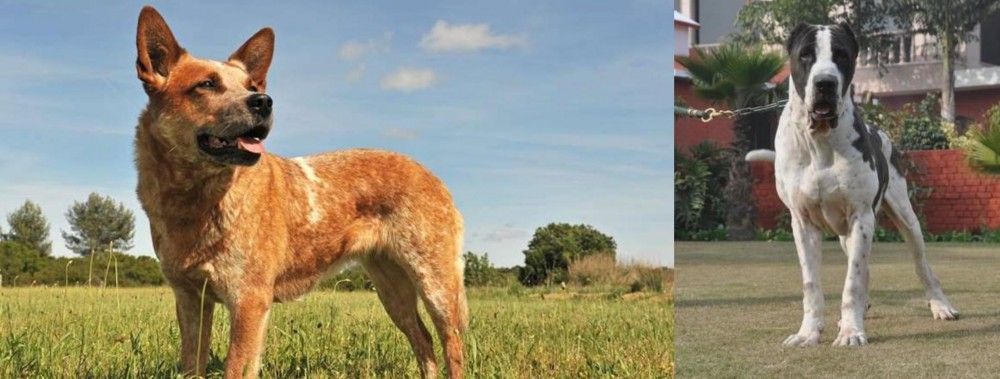 Australian Red Heeler is originated from Australia but Alangu Mastiff is originated from Pakistan. Australian Red Heeler may grow 35 cm / 13 inches shorter than Alangu Mastiff. Australian Red Heeler may weigh 74 kg / 163 pounds lesser than Alangu Mastiff. Australian Red Heeler may live 5 years more than Alangu Mastiff. Both Australian Red Heeler and Alangu Mastiff has almost same litter size. Australian Red Heeler requires Moderate Maintenance. But Alangu Mastiff requires Low Maintenance
Australian Red Heeler is originated from Australia but Alangu Mastiff is originated from Pakistan. Australian Red Heeler may grow 35 cm / 13 inches shorter than Alangu Mastiff. Australian Red Heeler may weigh 74 kg / 163 pounds lesser than Alangu Mastiff. Australian Red Heeler may live 5 years more than Alangu Mastiff. Both Australian Red Heeler and Alangu Mastiff has almost same litter size. Australian Red Heeler requires Moderate Maintenance. But Alangu Mastiff requires Low Maintenance
 When George Hall arrived in the New South Wales Colony in 1802 he set about ‘creating’ a tough working- or herding dog. By crossing Australia’s native Dingoes with Collies as well as with other herding dogs, the robust Red Heeler, also known as the Australian Cattle Dog came into being. Today he is a thick-set dog, ideally suited to working livestock.
When George Hall arrived in the New South Wales Colony in 1802 he set about ‘creating’ a tough working- or herding dog. By crossing Australia’s native Dingoes with Collies as well as with other herding dogs, the robust Red Heeler, also known as the Australian Cattle Dog came into being. Today he is a thick-set dog, ideally suited to working livestock.
Ranchers, particularly, were impressed with the breed’s toughness and they were sought after on cattle stations. The name actually comes from them when the dogs are herding animals, they nip at their heels to get them moving.
The Blue Heeler and the Red Heeler breed are the exact same dog, but just different colors. These Australian cattle dogs originated in Australia in the mid-1800s and adapted well to the harsh desert environment of the outback.
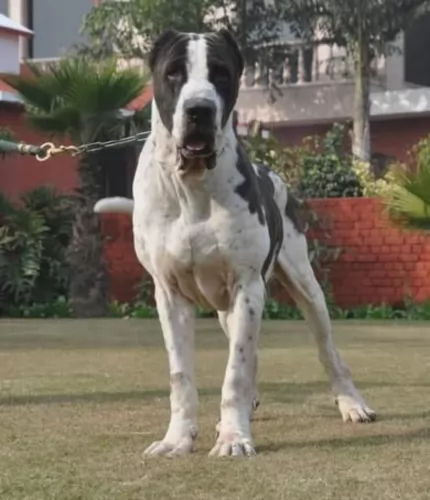 Alangu Mastiff is a breed that ,originates from southern India. Since the very beginning of this breed, it has been used as guard dogs and official dogs of Persian Army. They have been used mostly for wars and as a guard dogs for protection. Also, Alangu Mastiff was used as large gain hunters because of its size and power.
Alangu Mastiff is a breed that ,originates from southern India. Since the very beginning of this breed, it has been used as guard dogs and official dogs of Persian Army. They have been used mostly for wars and as a guard dogs for protection. Also, Alangu Mastiff was used as large gain hunters because of its size and power.
 The Red Heeler or Australian Cattle Dog is a sturdy, muscular dog with ears that are pricked and with dark, alert eyes. The tail is long. The neck, shoulders and legs of the Red Heeler are strong and muscular. The dog is longer than tall – the length of the body is greater than the height at the withers. A well fed, well exercised, well cared for Red Heeler will weight roughly 15–22 kilograms.
The Red Heeler or Australian Cattle Dog is a sturdy, muscular dog with ears that are pricked and with dark, alert eyes. The tail is long. The neck, shoulders and legs of the Red Heeler are strong and muscular. The dog is longer than tall – the length of the body is greater than the height at the withers. A well fed, well exercised, well cared for Red Heeler will weight roughly 15–22 kilograms.
There are 2 coat colours of the Reeler – red and blue, but there are are lesser varieties such as chocolate, cream, blue mottled, brindle and some with white markings. It is interesting to note that with both the Red- and the Blue Heeler, puppies are generally born white, with the coat turning to red as they mature.
These Australian Cattle Dogs display patches of solid colour, and you might well find masks over one or both eyes and a white tip to the tail. Both the Red and Blue Heeler can have a white star on the forehead which is referred to as the Bentley Mark. The Heelers have a double coat - short, straight outer hairs while the undercoat is short, fine and dense. Despite their short coat, they shed a lot.
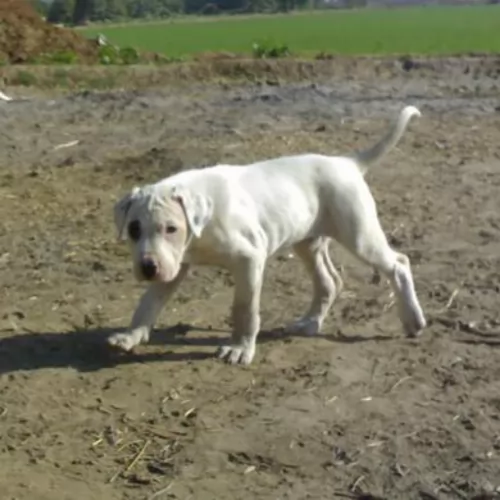 Weight of Alangu Mastiff depends but approximately, male weight is 70-90kg, while females are 60-70kg. While males height is 76-86cm. Females are slightly smaller with an average height of 75-80cm.
Weight of Alangu Mastiff depends but approximately, male weight is 70-90kg, while females are 60-70kg. While males height is 76-86cm. Females are slightly smaller with an average height of 75-80cm.
Lifespan depends drastically on every breed, but it is approximately 8-10 years.
The average litter size of Alangu Mastiff is 6-8 puppies.
Another Name for Alangu Mastiff is Sindh Mastiff.
 Your Australian Red Heeler needs plenty of exercise but also plenty of companionship too from his human family. He is an affectionate, playful pet but is reserved with people he doesn’t know. When socialized he is patient with children in the home but he does still have the tendency to herd them and nip at their heels. The dog builds up a strong bond with his human family, and is protective toward them, being happy to be close to his owner’s side.
Your Australian Red Heeler needs plenty of exercise but also plenty of companionship too from his human family. He is an affectionate, playful pet but is reserved with people he doesn’t know. When socialized he is patient with children in the home but he does still have the tendency to herd them and nip at their heels. The dog builds up a strong bond with his human family, and is protective toward them, being happy to be close to his owner’s side.
Red Heelers need activities and lots of room to play, and they therefore won’t adapt to apartment living. If you don’t live on a farm, don’t neglect your working dog as he will need lots of rough and tumble games and activities to keep him from boredom. Treat your Australian Red Heeler with the love, patience and kindness and you’ll bring out the very best from this active, loyal fur-friend of yours.
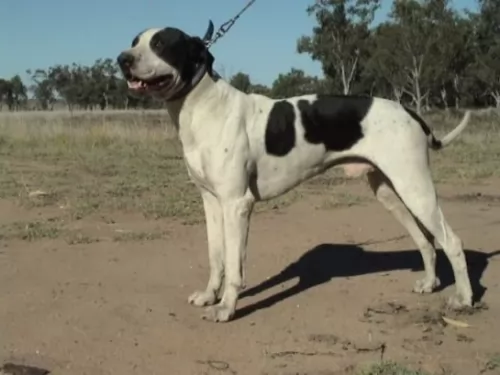 Alangu Mastiff is a very powerful breed. They are a giant breed that is very strong and protective. If you are first time owner, you definitely don’t want this breed as your first pet. They can be very aggressive, and if you are not a dominant owner who knows what he is doing all the time, you can have a lot of troubles with this breed. Alangu Mastiff is a guard dog, and they tend to protect the family no matter what is happening. Of course, with proper care and socialization, they can be wonderful pets that love family, and they can be gentle with children too. Basically, it is very important to socialize them from the earliest age. Alangu is also very hard to train, so you have to be patient and devote a lot of time to train your dog properly. Since they are large dogs, they require a lot of exercises. Walking with the leash is not enough for this breed. They need to run to be fully happy. They can be very aggressive towards other dogs, so it is not very recommendable to spend time with other pets, at least not if they are not socialized. If you train them from an early age, then you should still be careful how your dog behaves around other pets and animals. Don’t get this wrong, Alangu can be a wonderful pet for the whole family, but you have to be careful and well-trained for this breed. They require a lot of attention, patience and time, but overall they can be amazing pets.
Alangu Mastiff is a very powerful breed. They are a giant breed that is very strong and protective. If you are first time owner, you definitely don’t want this breed as your first pet. They can be very aggressive, and if you are not a dominant owner who knows what he is doing all the time, you can have a lot of troubles with this breed. Alangu Mastiff is a guard dog, and they tend to protect the family no matter what is happening. Of course, with proper care and socialization, they can be wonderful pets that love family, and they can be gentle with children too. Basically, it is very important to socialize them from the earliest age. Alangu is also very hard to train, so you have to be patient and devote a lot of time to train your dog properly. Since they are large dogs, they require a lot of exercises. Walking with the leash is not enough for this breed. They need to run to be fully happy. They can be very aggressive towards other dogs, so it is not very recommendable to spend time with other pets, at least not if they are not socialized. If you train them from an early age, then you should still be careful how your dog behaves around other pets and animals. Don’t get this wrong, Alangu can be a wonderful pet for the whole family, but you have to be careful and well-trained for this breed. They require a lot of attention, patience and time, but overall they can be amazing pets.
 The Australian Cattle Dog is quite often affected by progressive retinal atrophy, an eye condition where the rods and cones in the retina of the eye deteriorate later in life, and it could lead to blindness. This eye illness is an autosomal recessive trait, and even if the dog doesn’t develop the condition himself, he can be a carrier of the affected gene.
The Australian Cattle Dog is quite often affected by progressive retinal atrophy, an eye condition where the rods and cones in the retina of the eye deteriorate later in life, and it could lead to blindness. This eye illness is an autosomal recessive trait, and even if the dog doesn’t develop the condition himself, he can be a carrier of the affected gene.
The Heeler is just bursting with personality and energy and a study of dogs diagnosed at veterinary colleges described fractures and ligament tears as one of the most common conditions treated with the Australian Red Heeler.
You love your Australian Red Heeler and you want to take good care of him. Check with your vet because at 8 weeks he should be starting with his first puppy vaccinations.
To keep your best friend healthy and happy, watch his diet, ensure he gets plenty of exercise, brush his teeth regularly to remove plaque build-up, and always call your veterinarian when you see he is ill and isn’t his usual boisterous self.
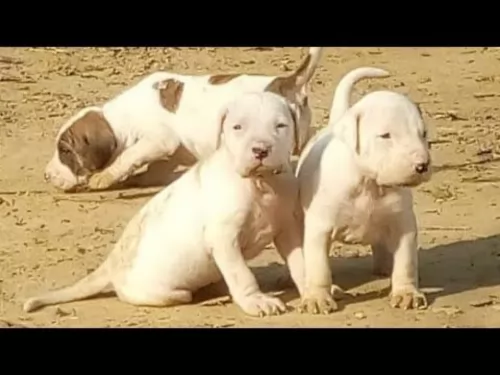 Basically most of the health problems depend on the dog to dog. If you choose puppy carefully, with an adequate examination of professional you will have a healthy dog. Alangu Mastiff is overall healthy breed, but as every other breed, they can develop some issues. Hip dysplasia is can be common for this breed, but again, only if you don’t select your puppy carefully.
Basically most of the health problems depend on the dog to dog. If you choose puppy carefully, with an adequate examination of professional you will have a healthy dog. Alangu Mastiff is overall healthy breed, but as every other breed, they can develop some issues. Hip dysplasia is can be common for this breed, but again, only if you don’t select your puppy carefully.
 The Australian Red Heeler is a low maintenance dog. He does shed quite a bit so you’ll need to brush his coat at least twice a week to remove loose hairs and to keep his coat lustrous. When your dog has been in a particularly dusty area, you you wipe his coat down with a damp cloth. As with all dogs, you’ll want to check his teeth, ears, eyes and nails regularly to avoid health problems.
The Australian Red Heeler is a low maintenance dog. He does shed quite a bit so you’ll need to brush his coat at least twice a week to remove loose hairs and to keep his coat lustrous. When your dog has been in a particularly dusty area, you you wipe his coat down with a damp cloth. As with all dogs, you’ll want to check his teeth, ears, eyes and nails regularly to avoid health problems.
If you care for your working- and herding dog you’ll train him to that he becomes a good family dog and companion. The Red Heeler has plenty of energy and stamina and if he grows up untrained and un-socialized, you could see him becoming aggressive towards other animals and even your own children. He certainly becomes over-protective of his territory if not socialized. Train him as he is an intelligent breed and responds well to training.
Any vet will tell you of the critical importance of a proper diet and exercise routine for your dog. He’s an active, smart dog with loads of energy and you want to keep his diet consistent with this energy. Speak to your vet about what food would suit your pet best, because a high quality diet appropriate to his age, his body size and his energy levels will be important. Along with high quality foods which include a good intake of raw meat, your dog must always have access to a bowl of fresh, cool water.
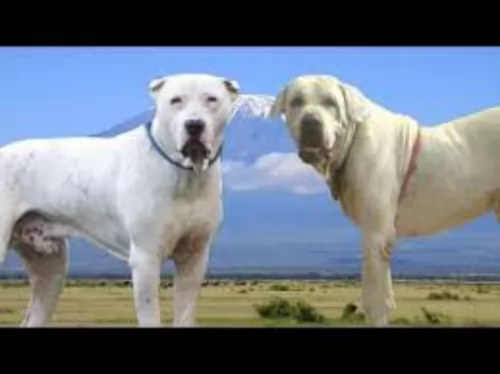 Feeding of your dog highly depends on activity, size, and food that you are feeding your dog. 5-10 cups of high-quality food divided into 2 meals would be enough for an average Alangu Mastiff, but again, you should feed your dog based on activity.
Feeding of your dog highly depends on activity, size, and food that you are feeding your dog. 5-10 cups of high-quality food divided into 2 meals would be enough for an average Alangu Mastiff, but again, you should feed your dog based on activity.
Puppies must eat 3-5 times per day, few cups of high-quality food. They need to eat quality food with a lot of vitamins and minerals to develop into a happy and healthy adult.
Groming is one of the easiest jobs that you should do around your Alangu Mastiff. They are very easy to take care off. Few brushes every now and then would be enough to have perfectly groomed pet. They do not have long coats with a lot of fur so there will be no hair around the house, and maintaining this majestic creature is very easy.